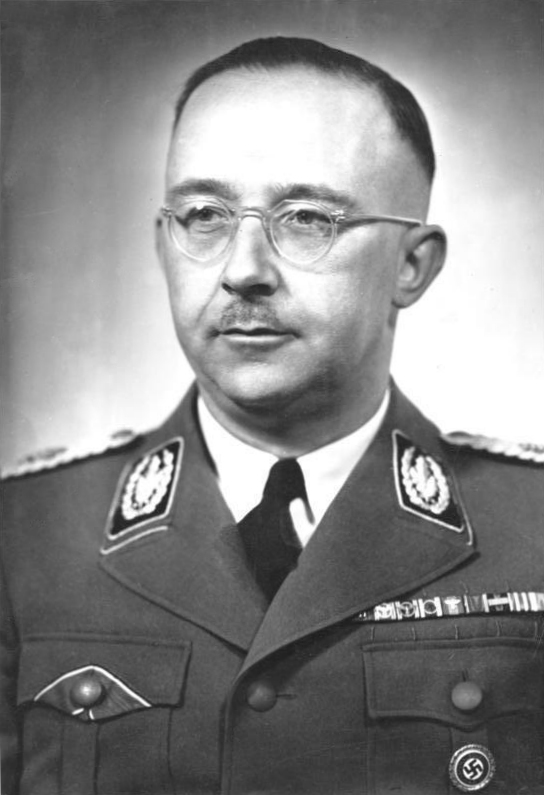Search Results - Himmler, Heinrich, 1900-1945
Heinrich Himmler
 Heinrich Luitpold Himmler (; 7 October 1900 – 23 May 1945) was a German politician who was the 4th of the (Protection Squadron; SS), a leading member of the German Nazi Party, and one of the most powerful men in Nazi Germany. He is primarily known for being a principal architect of the Holocaust.
Heinrich Luitpold Himmler (; 7 October 1900 – 23 May 1945) was a German politician who was the 4th of the (Protection Squadron; SS), a leading member of the German Nazi Party, and one of the most powerful men in Nazi Germany. He is primarily known for being a principal architect of the Holocaust.After serving in a reserve battalion during the First World War without seeing combat, Himmler went on to join the Nazi Party in 1923. In 1925, he joined the SS, a small paramilitary arm of the Nazi Party that served as a bodyguard unit for Adolf Hitler. Subsequently, Himmler rose steadily through the SS's ranks to become by 1929.
Under Himmler's leadership, the SS grew from a 290-man battalion into one of the most powerful institutions within Nazi Germany. Over the course of his career, Himmler acquired a reputation for good organisational skills as well as for selecting highly competent subordinates, such as Reinhard Heydrich. From 1943 onwards, he was both Chief of the ''Kriminalpolizei'' (Criminal Police) and Minister of the Interior, which gave him oversight of all internal and external police and security forces (including the Gestapo). He also controlled the ''Waffen-SS'', a branch of the SS that served in combat alongside the ''Wehrmacht'' in World War II.
As the principal enforcer of the Nazis' racial policies, Himmler was responsible for operating concentration and extermination camps as well as forming the ''Einsatzgruppen'' death squads in German-occupied Europe. In this capacity, he played a central role in the genocide of an estimated 5.5–6 million Jews and the deaths of millions of other victims during the Holocaust. A day before the launch of Operation Barbarossa in June 1941, Himmler commissioned the drafting of ''Generalplan Ost'', which was approved by Hitler in May 1942 and implemented by the Nazi regime, resulting in the deaths of approximately 14 million people in Eastern Europe.
In the last years of the Second World War, Hitler appointed Himmler as Commander of the Replacement Army and General Plenipotentiary for the administration of the Third Reich (''Generalbevollmächtigter für die Verwaltung''). He was later given command of the Army Group Upper Rhine and the Army Group Vistula. However, after he failed to achieve his assigned objectives, Hitler replaced him in these posts. Realising the war was lost, Himmler attempted, without Hitler's knowledge, to open peace talks with the western Allies in March 1945. When Hitler learned of this on 28 April, he dismissed Himmler from all his posts and ordered his arrest. Thereafter, Himmler attempted to go into hiding but was captured by British forces. He committed suicide in British custody on 23 May 1945. Provided by Wikipedia

